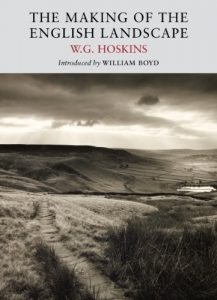"Veils were stripped away as I read the book . . . it was an absolute trailblazer, a revolution." William Boyd
W.G. Hoskins was one of the most original and influential British historians of the twentieth century. He realised that landscapes are the richest record we have of the past, and with his masterpiece, The Making of the English Landscape, he changed forever how we experience the places we live and work in.
Where we see a picturesque scene of rolling hills, distant spires and wooded valleys, Hoskins shows us the line of a Bronze Age trackway, the ghostly impression of an open-field system, the gridiron pattern of an industrial town, or the footprint of a Roman villa. By revealing these traces of the past, Hoskins enables us to appreciate different landscapes as if they were pieces of music, a series of compositions which enrich our understanding of the symphonic whole.
While planning and building our future villages and towns, in both green and urban places, this pioneering account reminds us why we must be sensitive to the land and its past as we leave our own marks in England’s historical landscape.
W.G. Hoskins was one of the most original and influential British historians of the twentieth century. He realised that landscapes are the richest record we have of the past, and with his masterpiece, The Making of the English Landscape, he changed forever how we experience the places we live and work in.
Where we see a picturesque scene of rolling hills, distant spires and wooded valleys, Hoskins shows us the line of a Bronze Age trackway, the ghostly impression of an open-field system, the gridiron pattern of an industrial town, or the footprint of a Roman villa. By revealing these traces of the past, Hoskins enables us to appreciate different landscapes as if they were pieces of music, a series of compositions which enrich our understanding of the symphonic whole.
While planning and building our future villages and towns, in both green and urban places, this pioneering account reminds us why we must be sensitive to the land and its past as we leave our own marks in England’s historical landscape.






